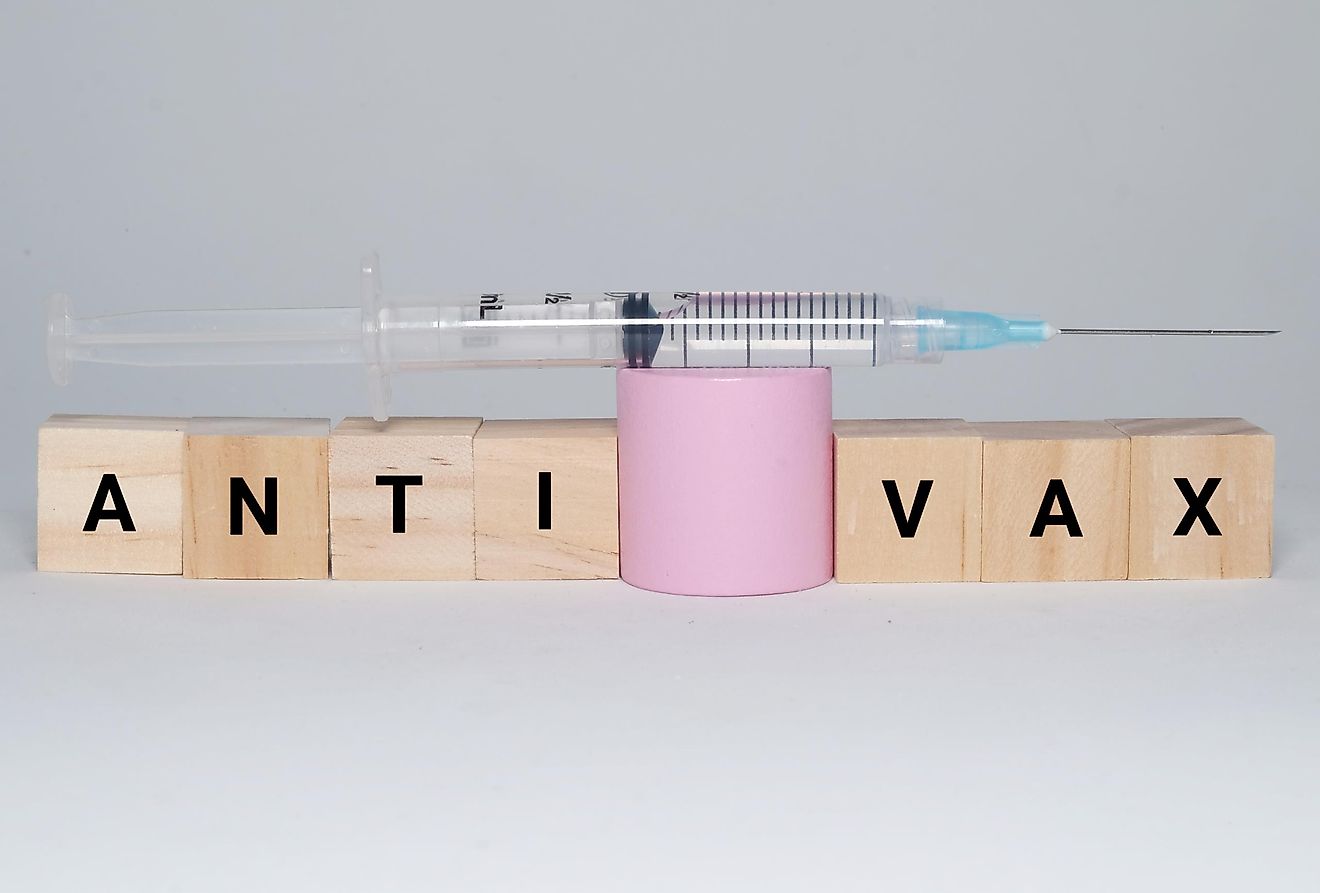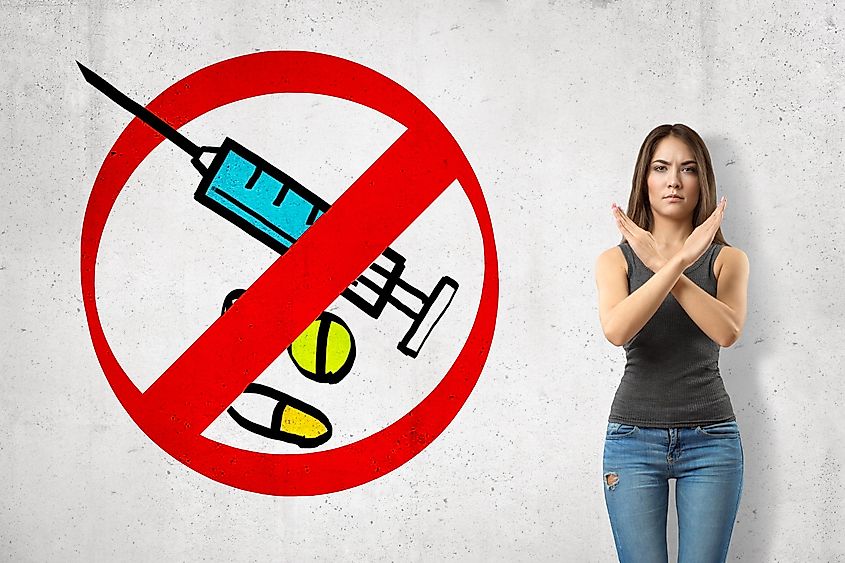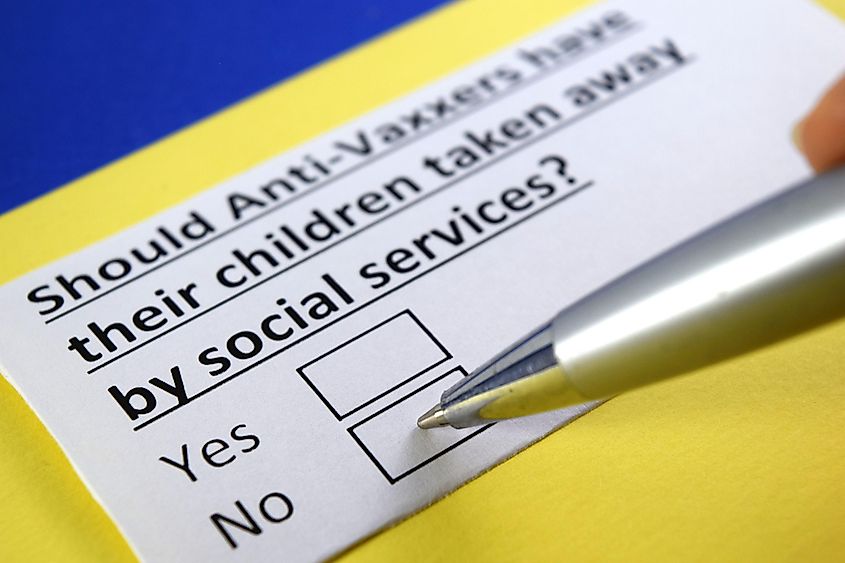What Is An Anti-Vaxxer?

- Vaccines do not cause autism.
- The risk of serious allergic reaction or death from vaccines is negligible.
- There has never been a single credible study linking vaccines to long term health conditions.
Do you remember getting needles when you were a child? If you do, those needles were likely used to deliver vaccines into your body to prevent certain diseases. Before the advent of modern vaccines, people around the world were dying of illnesses like measles, mumps, rubella, polio and various other diseases that are now preventable with vaccines. According to the Center for Disease Control (CDC), children should start receiving vaccines as early as two months of age. It is now generally agreed that vaccinating your children is one of the most important steps that you can take to keep them healthy. But not all people agree on this.

Defining the Term Anti-Vaxxer
There are some who do not believe in getting vaccinated. These people are called anti-vaxxers. Merriam-Webster’s dictionary specifically defines an anti-vaxxer as, “a person who opposes vaccination or laws that mandate vaccination.” In other words, not only do anti-vaxxers not believe in vaccination, but they also oppose any legal attempts to force them to vaccinate their children or themselves. There are a few reasons why these people oppose vaccinations.

Vaccination Against Religious Beliefs?
The first reason is because of certain religious beliefs. For example, outbreaks of diseases that vaccines can prevent have recently occurred in Thailand and Indonesia, where Muslim religious authorities have said that such vaccines are forbidden in Islam as they contain pork-derived products. The consumption of pork is forbidden in the religion of Islam. But religious beliefs against vaccination are not limited to one religion. In fact, in the United States, some Christian churches forbid or discourage their believers from receiving vaccinations. The Dutch Reformed Church, for instance, prohibits vaccinations on the grounds that they interfere with a person’s relationship with God. The Catholic Church frowns on some vaccinations because they were originally derived from cells extracted from aborted fetuses, contravening the Catholic belief that life begins at conception, and violating that life constitutes a sin, though it does not have an outright objection to its believers receiving such vaccines.

Do Vaccines Cause Autism?
There are also anti-vaxxers who do not want themselves or their children vaccinated because they believe certain misconceived theories that discourage vaccination. One popular misconception is that vaccines cause autism. This myth is based on a study published in a medical journal called The Lancet, in which a British surgeon claimed that the MMR (measles, mumps, rubella) vaccine was leading to an increase in the number of children in Britain with autism. This study was completely debunked, however, and the surgeon who published it was stripped of his medical license. The Lancet also retracted the study.

Are Vaccines Toxic? Is Building Natural Immunity Better?
Anti-vaxxers also suggest that vaccines are a conspiracy by pharmaceutical companies that are simply out to receive financial gain. There are lesser-talked-about misconceptions about vaccines as well, which are often related to their contents. Anti-vaxxers say, for instance, that the vaccines contain unsafe toxins, but there is no scientific evidence suggesting that some chemicals contained in vaccines, like mercury, aluminum, and formaldehyde, can cause harm at such low levels. Anti-vaxxers also try to make the case that building natural immunity to diseases like measles, etc., is more effective than vaccines. In actuality, a person has a much greater chance of death if they rely on natural immunity to protect them as opposed to vaccines.
All of the anti-vaxxer theories are general misconceptions not proven by science. Furthermore, proponents of vaccination argue that such unsubstantiated notions are the reason that there has been a resurgence in preventable diseases in places where such beliefs are popular, in both the U.S. and abroad.












